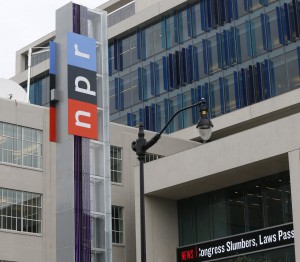 Sept. 13, 2013 — Red ink is dousing National Public Radio after moving into a plush new building while corporate sponsors have been taking a pass on underwriting programming.
Sept. 13, 2013 — Red ink is dousing National Public Radio after moving into a plush new building while corporate sponsors have been taking a pass on underwriting programming.
The news comes on the heels of current CEO Gary Knell announcing plans move on to the top job at the National Geographic Society, He will be replaced by NPR board Vice Chairman Paul Haaga, a lawyer and retired chairman of the capital research and management company.
Top management changes have been a constant and not-so-civilized game of costly musical chairs and forced departures for the past 15 years with frequent and sometimes disruptive re-engineering of the organization. Since 2008, five CEOs have come and gone, most of whom left with hefty severance packages. In one case, severance topped a million dollars. Others were in the high hundreds of thousands.
Now the U.S. non-profit public broadcaster is offering voluntary buyouts to its 840 employees with an eye on a 10 percent cut to its staff. The move follows layoffs of more than 60 employees five years ago and staff reductions through attrition ever since.
NPR moved to a new, 400,000 square-foot building just last April to accommodate growth. The sparkling, $200-million building features high ceilings, a gourmet cafe and resident chef, a “wellness” center, and an employee gym. The price tag topped the broadcaster’s 2013 budget of $174.7 million, according to The Washington Post and was paid for from bond floats, private donations and the sale of NPR’s old building.
The building sparked renewed grimaces from Capitol Hill and others who question the upscale surroundings for an operation reliant on public subsidies.
Local commercial competitor WTOP, an all-news broadcaster in Washington, DC, was quick to shoot a volleying shot: “They build a ‘News Palace’ and they still need taxpayer dollars?!?” tweeted WTOP vice president of news at the time.
Perhaps so. The organization claims to be projecting a budget deficit of more than $6.1 million for the coming year.
But one wonders about the management of the $225-million endowment from the Kroc Foundation donated to NPR a decade ago.
Touted as “the largest monetary gift ever received by an American cultural institution,” it was made by Joan Beverly Kroc, widow of McDonald’s CEO Ray Kroc. If that gift had been maintained in high-dividend McDonald’s stock, it would have quadrupled and be in the neighborhood of a billion dollars today.

